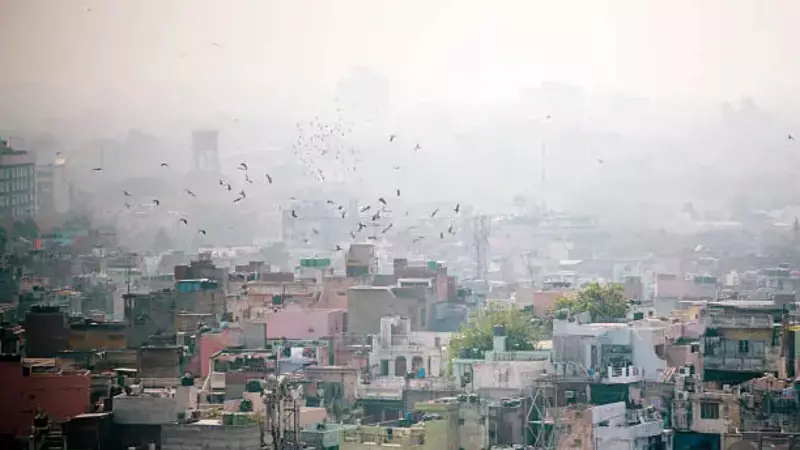
As India's urban landscapes continue to grapple with deteriorating air quality, millions of citizens are experiencing health impacts they often fail to recognize. The toxic air that blankets many Indian cities carries consequences that extend far beyond visible smog, manifesting in subtle yet significant ways that affect daily life and long-term wellbeing.
The Silent Invasion: How Pollution Creeps Into Your System
Air pollution doesn't always announce its presence with dramatic coughing fits or immediate breathing difficulties. More often, it infiltrates our bodies through subtle symptoms that many people dismiss as fatigue, stress, or minor allergies. Medical experts warn that recognizing these early warning signs is crucial for preventing more serious health complications down the line.
The particulate matter and toxic gases present in India's polluted air can trigger inflammatory responses throughout the body. Fine particles known as PM2.5 are particularly dangerous because they're small enough to penetrate deep into lung tissue and even enter the bloodstream, causing systemic damage that affects multiple organs.
Ten Warning Signs You Should Never Ignore
Healthcare professionals identify several common but often overlooked indicators that air pollution is taking a toll on your health:
Persistent morning headaches have become increasingly common among urban residents. Many people wake up with dull, throbbing pain that gradually improves throughout the day. This occurs because pollutants accumulate in indoor spaces overnight, and the body reacts to prolonged exposure during sleep hours.
Unexplained fatigue and low energy levels represent another red flag. When your body works constantly to filter out pollutants and fight inflammation, it consumes significant energy resources. This leaves you feeling drained even after adequate rest, creating a persistent state of exhaustion that coffee breaks can't fix.
Irritated eyes that feel gritty or watery without any apparent cause indicate that pollution particles are irritating the delicate membranes. Many people mistake this for screen fatigue or allergies, but when it occurs consistently, especially after commuting or spending time outdoors, polluted air is likely the culprit.
Frequent throat irritation and the constant need to clear your throat signal that your respiratory system is working overtime. The mucous membranes in your throat act as a first line of defense, trapping pollutants before they reach your lungs. When overwhelmed, they become inflamed and produce excess mucus.
Difficulty concentrating and brain fog have emerged as concerning cognitive effects of pollution exposure. Studies show that polluted air can impact cognitive function, memory, and attention span. If you find your mental clarity diminishing, especially on high-pollution days, the air quality might be to blame.
Worsening of existing skin conditions like eczema or acne often surprises people who don't connect their skin health to air quality. Pollution particles can clog pores, trigger inflammation, and generate oxidative stress that accelerates skin aging and aggravates conditions.
Increased allergy symptoms despite no change in allergens occur because pollutants make respiratory systems more sensitive and reactive. Even if pollen counts haven't changed, your body may respond more strongly because pollution has compromised your respiratory defenses.
Unexplained shortness of breath during routine activities that previously didn't wind you indicates reduced lung capacity. This is particularly noticeable when climbing stairs, walking briskly, or carrying moderate loads—activities that suddenly leave you gasping for air.
Frequent sinus congestion without cold symptoms plagues many pollution-affected individuals. The sinuses become inflamed from constant exposure to irritants, leading to persistent stuffiness, pressure, and discomfort that mimics chronic sinusitis.
Disrupted sleep patterns and difficulty staying asleep complete the list of subtle signs. Air pollution can interfere with sleep quality by causing nasal congestion, breathing difficulties, and systemic inflammation that prevents the body from achieving restorative rest.
Protecting Yourself in India's Polluted Cities
Recognizing these symptoms is only the first step. Taking proactive measures to minimize exposure and strengthen your body's defenses is equally important. Monitoring daily air quality indexes can help you plan outdoor activities for times when pollution levels are relatively lower.
Investing in high-quality air purifiers for your home and workplace creates cleaner indoor environments where you spend most of your time. Properly fitted N95 or N99 masks provide significant protection during necessary outdoor activities, especially during peak traffic hours.
Strengthening your body's natural defenses through antioxidant-rich nutrition helps combat the oxidative stress caused by pollution. Foods rich in vitamins C and E, omega-3 fatty acids, and other antioxidants can provide some protection at the cellular level.
Medical experts emphasize that early recognition of these subtle symptoms can prevent more serious health complications. While individual protective measures are valuable, collective action to improve air quality remains the ultimate solution to India's pollution crisis.
The growing awareness of these subtle signs represents an important shift in how Indians understand and respond to air pollution. By listening to our bodies and recognizing these early warnings, we can take timely action to protect our health while working toward cleaner air for all citizens.






